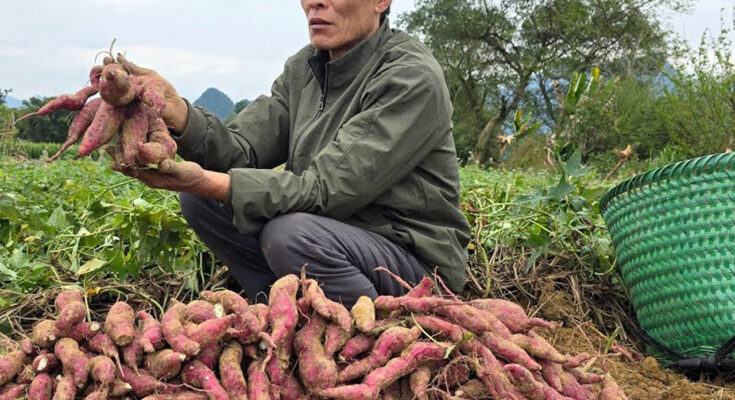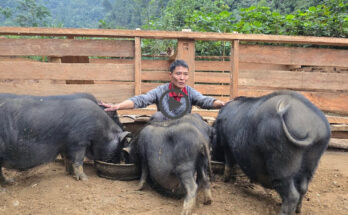The morning sun stretched lazily over the horizon, casting long shadows on the soil as I knelt among the sprawling green vines. Sweet potatoes peeked shyly from the earth, their rich, earthen hues contrasting against the dark, crumbly dirt. The harvest was ready—each tuber a testament to months of care and patience. With a firm tug and a satisfying pull, I unearthed the first sweet potato, its smooth skin still damp with morning dew.
Nearby, the gentle clucking of hens and the occasional bark of my loyal dog punctuated the serene quiet. The animals had grown used to this routine, watching as I loaded crates with nature’s bounty. Their presence felt grounding—a reminder of the life sustained on this small, self-sufficient patch of land.
By noon, the market was alive with vibrant chatter and colorful stalls. My table overflowed with neatly stacked sweet potatoes, their deep orange and reddish hues catching the light. Shoppers admired their size and heft, some asking about the care it took to grow them. I spoke of composted soil, the rhythm of the seasons, and the simple joy of working with one’s hands.
Between sales, I shared tips with a fellow vendor about pet care—how to keep chickens safe from predators or the best herbal remedies for a dog’s rough paws. Solo survival wasn’t just about enduring; it was about creating a life that thrived. Each potato sold, every tip exchanged, was another step in sustaining this way of life.
As the day wound down, my crates emptied, and my heart swelled with quiet pride. The connection to the land, the animals, and the people who valued my labor felt like the most profound form of wealth.

